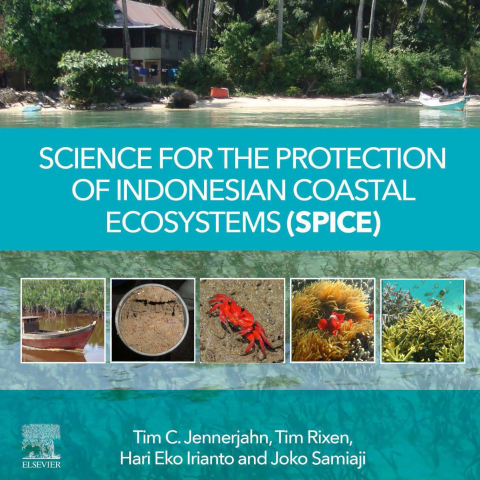26/10/2021 | Indonesia, with its more than 17,000 islands, is an extraordinary place on our planet. It is among the countries with the most extensive mangrove forests, seagrass beds, and coral reefs, the highest fluxes of dissolved and particulate matter into the ocean, and the greatest marine biodiversity. However, the archipelago is also vulnerable to human-induced environmental change and the impacts of climate change.
To address these challenges, the interdisciplinary research and capacity building programme "Science for the Protection of Indonesian Coastal Ecosystems" (SPICE) was launched as part of the German-Indonesian science and technology cooperation. Led by the ZMT on the German side, it addressed the scientific, social and economic issues of managing Indonesian coastal ecosystems and their resources over a period of twelve years.
The SPICE programme strengthened the scientific database of marine-related research topics, promoted capacity and infrastructure building in the marine sector, and contributed to public education and awareness. Now, a synthesis publication has been released that brings together the results of the programme with the participation of more than 100 authors from Germany and Indonesia.
In twelve chapters, the book covers topics such as the physical setting of Indonesia's coastal seas, their main ecosystems (rivers and estuaries, peat bogs, coral reefs, seagrass beds, mangrove forests), pollution as the main threat, environmental history with respect to climate and oceanography, blue economy and governance. Moreover, an essential aspect of the book are the future-proof research topics and recommendations for action for policy and society listed at the end of each chapter.
"The book comes at an important time in the study of the ocean, and in particular of the coastal seas. It is a timely contribution to the UN Decade of the Ocean coordinated by UNESCO-IOC," said Tim Jennerjahn, one of the editors and coordinator of one of the thematic clusters in SPICE.
In recent decades, Indonesia has become more aware of the social and economic dimensions of the ocean as a livelihood and the need for governance measures to sustainably manage marine resources. The book will serve as an important background document for Indonesia as it prepares to implement international collaborative projects with support from the Indonesian Science Fund.
Publication
T.C. Jennerjahn, T. Rixen, H.E. Irianto, J. Samiaji (eds.), 2021. Science for the Protection of Indonesian Coastal Ecosystems, Elsevier, 457 p.
More information about the book:





